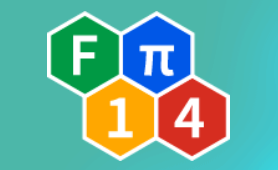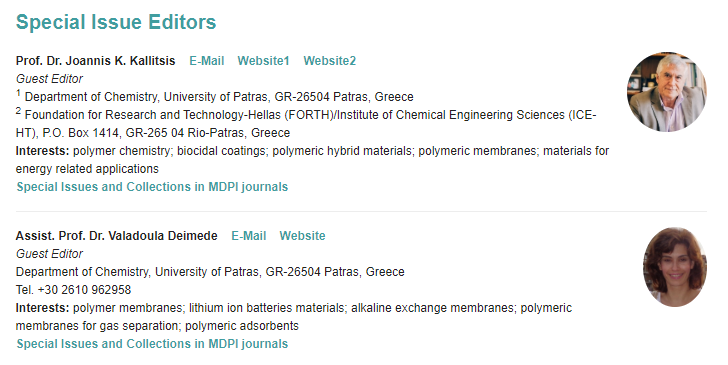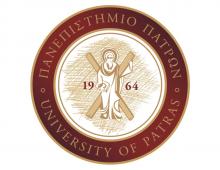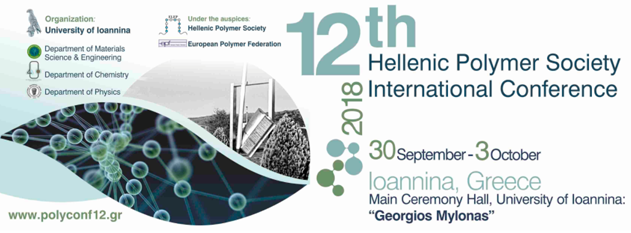Dear Colleagues,
It is our pleasure to invite you to submit your original work or a review article to this Special Issue of Molecules focusing on “Polymeric Membranes for Gas Separation”. The increasing demand for energy-efficient industrial gas separations along with emerging societal important applications, such as CO2 capture, natural gas purification, and olefin/paraffin separations, has stimulated the increasingly growing interest towards the use of membrane technology for gas separation. Polymer-based membrane materials occupy the vast majority of all membrane materials due to their intrinsic advantages, such as good processability and robustness. In addition, in recent years, polymer-based mixed matrix materials (comprising metal organic frameworks, 2-D materials, carbon molecular sieves, zeolites, and ionic liquids) have been under extensive exploration to achieve superior separation properties.
This Special Issue aims to deliver new insights and report on recent advances in synthesis and characterization of novel materials as well as processes for polymeric membranes for gas separation. In particular, the topics of interest include novel membrane materials (polymers, mixed-matrix materials, poly(ionic liquids), etc.), novel gas separation processes, modeling of membrane materials, CO2 capture, fabrication and characterization of thin film composite membranes, long-term membrane performance, membrane hollow fibers, large scale-applications, etc.
We look forward to receiving your outstanding work for this Special Issue.
Assist. Prof. Dr. Valadoula Deimede
Prof. Dr. Joannis Kallitsis
Guest Editors
Manuscript Submission Information
Manuscripts should be submitted online at www.mdpi.com by registering and logging in to this website. Once you are registered, click here to go to the submission form. Manuscripts can be submitted until the deadline. All papers will be peer-reviewed. Accepted papers will be published continuously in the journal (as soon as accepted) and will be listed together on the special issue website. Research articles, review articles as well as short communications are invited. For planned papers, a title and short abstract (about 100 words) can be sent to the Editorial Office for announcement on this website.
Submitted manuscripts should not have been published previously, nor be under consideration for publication elsewhere (except conference proceedings papers). All manuscripts are thoroughly refereed through a single-blind peer-review process. A guide for authors and other relevant information for submission of manuscripts is available on the Instructions for Authors page. Molecules is an international peer-reviewed open access semimonthly journal published by MDPI.
Please visit the Instructions for Authors page before submitting a manuscript. The Article Processing Charge (APC) for publication in this open access journal is 2000 CHF (Swiss Francs). Submitted papers should be well formatted and use good English. Authors may use MDPI's English editing service prior to publication or during author revisions.











